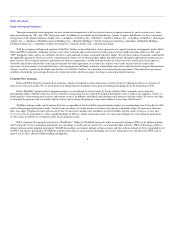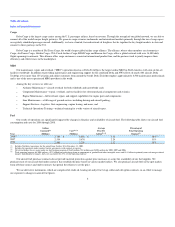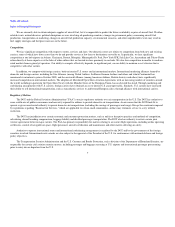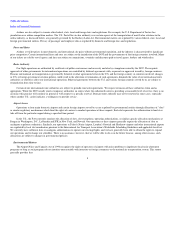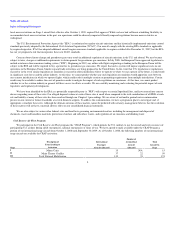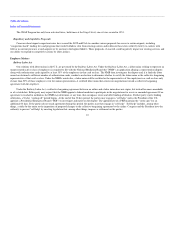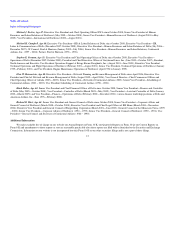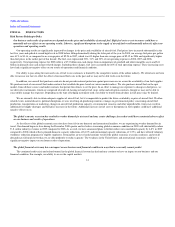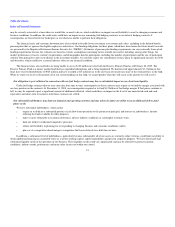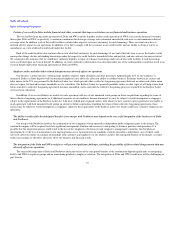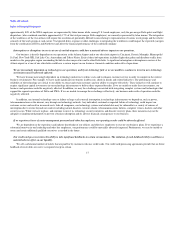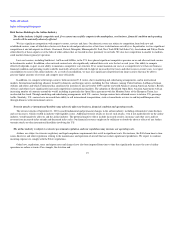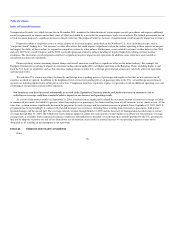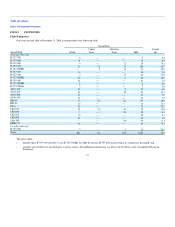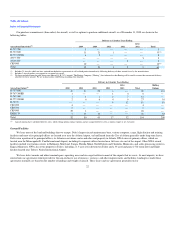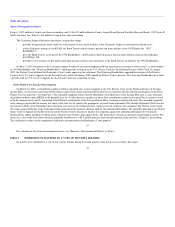Delta Airlines 2008 Annual Report Download - page 20
Download and view the complete annual report
Please find page 20 of the 2008 Delta Airlines annual report below. You can navigate through the pages in the report by either clicking on the pages listed below, or by using the keyword search tool below to find specific information within the annual report.
Table of Contents
Index to Financial Statements
may be severely restricted at a time when we would like, or need, to do so, which could have an impact on our flexibility to react to changing economic and
business conditions. In addition, the credit crisis could have an impact on our remaining fuel hedging contracts or our interest hedging contracts if
counterparties are forced to file for bankruptcy or are otherwise unable to perform their obligations.
The financial crisis and economic downturn have also resulted in broadly lower investment asset returns and values, including in the defined benefit
pension plans that we sponsor for eligible employees and retirees. Our funding obligations for these plans, which have been frozen for future benefit accruals,
are governed by the Employee Retirement Income Security Act ("ERISA"). Estimates of pension plan funding requirements can vary materially from actual
funding requirements because the estimates are based on various assumptions concerning factors outside our control, including, among other things, the
market performance of assets; statutory requirements; and demographic data for participants, including the number of participants and the rate of participant
attrition. Due primarily to the recent decline in the investment markets, we currently expect our contributions to these plans to significantly increase for 2010
and thereafter, which could have a material adverse effect on our financial condition.
The financial crisis also resulted in us being unable to access $139 million invested with the Reserve Primary Fund as of February 28, 2009. The
Reserve Primary Fund is a money market fund that has suspended redemptions and is being liquidated. We had invested approximately $1.1 billion in this
fund, have received distributions of $925 million and have recorded a $13 million loss to the cost basis of our pro rata share of the estimated loss in the fund.
While we expect to receive substantially all of our current holdings in this fund, we cannot predict when this will occur or the amount we will receive.
Our obligation to post collateral in connection with our fuel hedge contracts may have a substantial impact on our short-term liquidity.
Under fuel hedge contracts that we may enter into from time to time, counterparties to those contracts may require us to fund the margin associated with
any loss position on the contracts. At December 31, 2008, our counterparties required us to fund $1.2 billion of fuel hedge margin. If fuel prices continue to
fall, we may be required to post a significant amount of additional collateral, which could have an impact on the level of our unrestricted cash and cash
equivalents and short-term investments until those contracts are settled.
Our substantial indebtedness may limit our financial and operating activities and may adversely affect our ability to incur additional debt to fund
future needs.
We have substantial indebtedness, which could:
• require us to dedicate a substantial portion of cash flow from operations to the payment of principal, and interest on, indebtedness, thereby
reducing the funds available for other purposes;
• make us more vulnerable to economic downturns, adverse industry conditions or catastrophic external events;
• limit our ability to withstand competitive pressures;
• reduce our flexibility in planning for or responding to changing business and economic conditions; and/or
• place us at a competitive disadvantage to competitors that have relatively less debt than we have.
In addition, a substantial level of indebtedness, particularly because substantially all of our assets are currently subject to liens, could limit our ability to
obtain additional financing on acceptable terms or at all for working capital, capital expenditures and general corporate purposes. We have historically had
substantial liquidity needs in the operation of our business. These liquidity needs could vary significantly and may be affected by general economic
conditions, industry trends, performance and many other factors not within our control.
15


